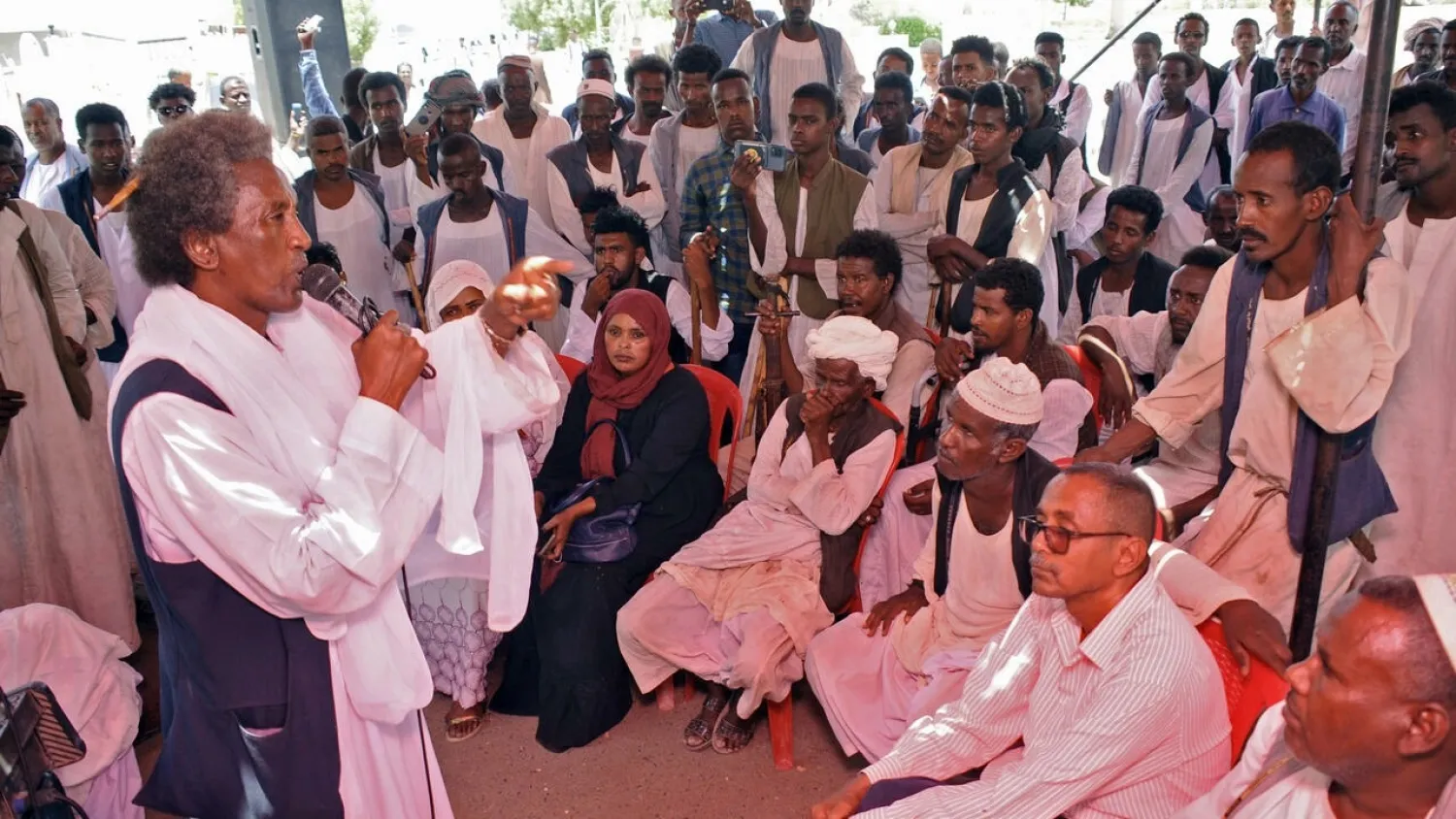A coalition of tribes in East Sudan announced on Tuesday the end of a sit-in which blocked roads to the crucial Red Sea port, after the governor announced his resignation.
The Port Sudan sit-in protested a 2020 peace deal the country's Beja tribes say made too many concessions at the expense of their group, which has long complained of marginalization.
Hundreds of protesters demanded the parts of the deal relating to their eastern region be scrapped and the dismissal of Red Sea state governor Ali Abdullah Adroub, whom they accused of supporting the deal.
The governor announced his resignation in a statement Tuesday.
The coalition of Beja tribes then released their own statement declaring an end to "all the sit-ins in eastern Sudan, after the resignation of the Red Sea State governor was confirmed," without reference to other demands.
The 2020 Juba Agreement was a landmark accord between rebel groups and a military-civilian transition government which came to power shortly after the April 2019 ouster of long-time president Omar al-Bashir.
But Sudan's eastern Beja people, who number more than 4.5 million, have criticized the fragile peace agreement for not representing them, and intermittent protests have demanded parts relating to their impoverished region be scrapped.
In September last year, protesters from eastern communities led similar demonstrations against the same agreement.
The ensuing six-week blockade worsened Sudan's already struggling economy by exacerbating fuel and wheat shortages, heaping pressure on the transitional government of then-prime minister Abdalla Hamdok.
Port Sudan, the country's main seaport and vital trade hub, was reopened in November following a coup by army chief Abdel Fattah al-Burhan which upended Sudan's fragile transition to civilian rule.
In December, Sudan's sovereign council suspended parts of the 2020 peace deal relating to the east pending discussions, but protesters in Port Sudan told AFP on Monday their demands had not been met.









